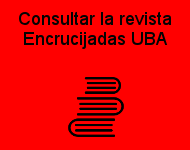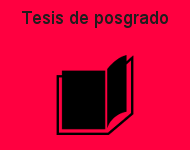Narratives and crime. Exploring the differences between desisters and persistent offenders
Vigna, Ana
En:
Delito y Sociedad; Núm. 51 (2021): Delito y Sociedad; e0026
Editor:
Universidad Nacional del Litoral - Universidad de Buenos Aires. Facultad de Ciencias Sociales. Instituto de Investigaciones Gino Germani
Fecha:
2021-06-22
Tipo de documento:
artículo
info:eu-repo/semantics/publishedVersion
info:eu-repo/semantics/publishedVersion
Formato:
application/pdf
Idioma:
spa
Contenido:
La «teoría narrativa» establece que los procesos lingüísticos y cognitivos que guían las autobiografías tienen el poder de estructurar la memoria, generando efectos a futuro. Este trabajo aplica el análisis narrativo a entrevistas en profundidad a 96 personas (hombres y mujeres) que se encontraban en diferentes etapas de sus trayectorias delictivas. Los resultados muestran que, mientras los discursos de quienes atravesaron una conversión religiosa poseen características propias de lo que Maruna (2001) denomina «guiones de redención», los mismos carecen de la dimensión de internalidad y estabilidad señaladas por el autor. Por su parte, quienes denominamos«desistidores laicos» elaboran discursos ligados al «síndrome del quemado», propio de la perspectiva ontogénica. Finalmente, los relatos de quienes persisten, se asemejan a los «guiones de condena», aunque tienden a depositar en factores externos las causas de sus adversidades. - The «narrative theory» stands that the linguistic and cognitive processes that guide autobiographies have the power to structure memory, generating effects for the future. This work applies narrative analysis to in-depth interviews with 96 people (men and women) who were in different stages of their criminal trajectories. The results show that, while the discourses of those who underwent a religious conversion have characteristics of what Maruna (2001) describes as «redemption scripts», they lack the dimension of internality and stability. On the other hand, the «secular desister» elaborate discourses linked to the «burn-out syndrome» characteristic of the ontogenetic perspective. Finally, the persistent offenders’ self-narratives are similar to the «condemnation scripts», even though they tend to place the causes of their adversities on external factors.
Identificador(es):
https://bibliotecavirtual.unl.edu.ar/publicaciones/index.php/DelitoYSociedad/article/view/10410
ISSN 2468-9963 - 0328-0101
ISSN 2468-9963 - 0328-0101
Derechos:
info:eu-repo/semantics/openAccess
Descargar texto:  10410.oai
10410.oai
 10410.oai
10410.oai Cita bibliográfica:
Vigna, Ana (2021-06-22). Narratives and crime. Exploring the differences between desisters and persistent offenders (artículo). Universidad Nacional del Litoral [consultado: ] Disponible en el Repositorio Digital Institucional de la Universidad de Buenos Aires: <https://bibliotecavirtual.unl.edu.ar/publicaciones/index.php/DelitoYSociedad/article/view/10410>





























